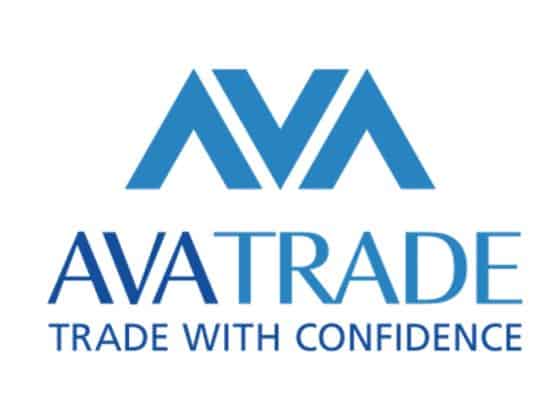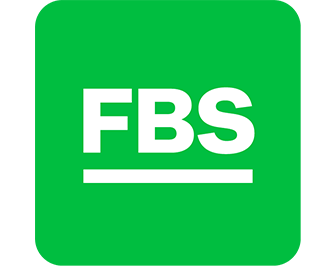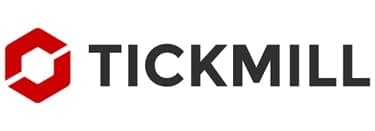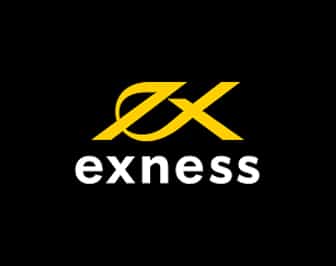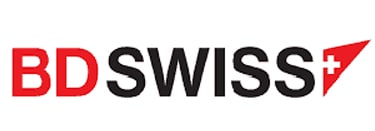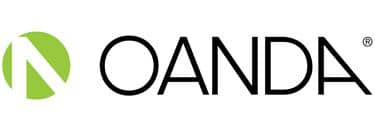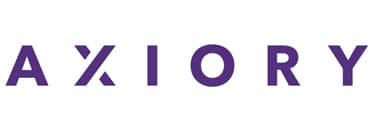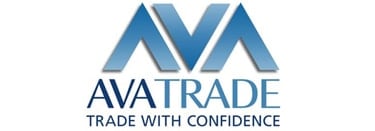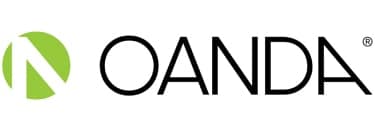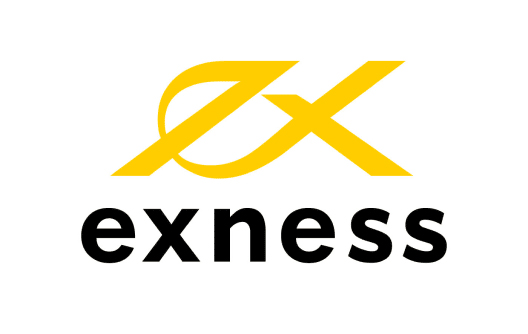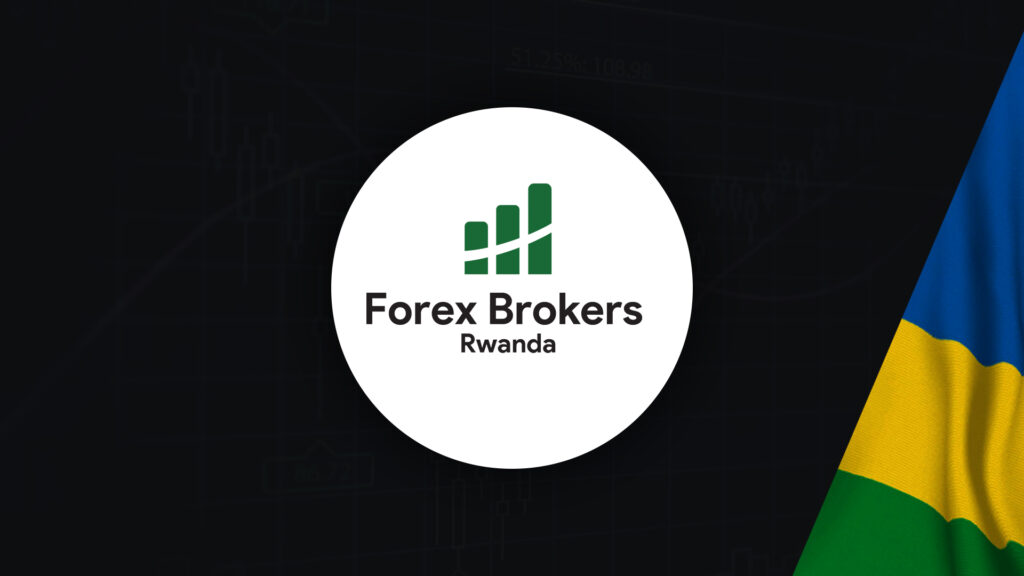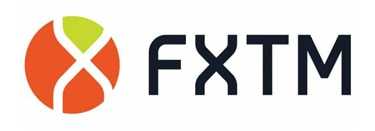
5 Best Shares to Sell in Rwanda
The Best 5 Shares to Sell in Rwanda revealed. We tested and verified the best shares to sell to Rwandan Traders.
This is a complete list of the best shares to sell in Rwanda.
In this in-depth guide you’ll learn:
- What are shares?
- Which shares to keep an eye on in 2024 as a Rwandan Trader?
- Our recommended 5 shares to sell for Rwandan Traders
- How to compare shares against each other
- Which brokers can you use to trade on with shares in Rwanda?
- How to sell shares?
- List of the best 5 stock exchange brokers
- Rwanda stock market
And lots more…
So if you’re ready to go “all in” with the best shares to sell for Rwandans…
Let’s dive right in…
10 Best Forex Brokers in Rwanda for 2024
Rank
Broker
Review
Regulators
Min Deposit
Official Site
- Louis Schoeman
5 Best Shares To Sell in Rwanda (Updated 2024)
1. Learn Africa Plc (LEARNAFRCA)

Overall, Learn Africa Plc, an educational publishing and distribution company, specializes in the creation of scholastic resources catering to students at every educational level, ranging from early childhood to higher education.
The organization actively participates in the book-publishing industry, offering a wide array of reading materials that encompass academic, commercial, and recreational literature.
Trading on the RSE exchange under the stock symbol “LEARNAFRCA,” Learn Africa stands as a significant player in the publishing sector.
Presently, Learn Africa ranks 118th on the RSE in terms of market value, boasting a market capitalization of RWF 2.21 billion, which accounts for approximately 0.0056% of the Rwandan Stock Exchange equity market.
| Metrics | Value |
| 🥇 Current Live Price | 2.88 RWF |
| 🔄 1 Year Change | +79.8% |
| 🔁 YTD Change | +67.5% |
| 💻 52-Week Range | 1.36 to 3.93 |
| 💸 1-Year Liquidity | 183.54 Million |
| 💵 Market Capitalization | 2.21 Billion |
| 📲 # Shares Traded | 39,000 |
| 💰 Gross Turnover | 924,940 |
2. Presco Plc (PRESCO)

Presco Plc is a prominent company operating in Rwanda, providing a comprehensive range of services to its customers. As a leading player in various industries, Presco Plc has established itself as a trusted name in the Rwandan market.
The company is listed on the Nairobi Securities Exchange under the ticker symbol “PRESRWANDA.” Investors can easily identify Presco Plc through the International Securities Identification Number (ISIN) associated with the Nairobi Securities Exchange: NSX-PRESRWANDA.
Presco Plc’s robust presence and consistent performance have cemented its prominent position within the Rwandan business landscape. The company stands among the leading enterprises in terms of market capitalization, underscoring its substantial value and influence in the market.
This achievement speaks volumes about Presco Plc’s success, highlighting its strong reputation and enduring impact on both businesses and consumers in Rwanda.
Presco Plc’s unwavering commitment to excellence, customer satisfaction, and innovation has been pivotal in driving its impressive accomplishments and sustained expansion within the Rwandan market.
| Metrics | Value |
| 🥇 Current Live Price | 211.74 RWF |
| 🔄 1 Year Change | +84.7% |
| 🔁 YTD Change | +51.5% |
| 💻 52-Week Range | 100.41 to 196.39 |
| 💸 1-Year Liquidity | 14.91 Billion |
| 💵 Market Capitalization | 196.39 Billion |
| 📲 # Shares Traded | 1.62 Million |
| 💰 Gross Turnover | 48.43Million |
3. Courteville Business Solutions Plc (COURTVILLE)

Courteville Business Solutions Plc is a renowned company operating in Rwanda, offering a wide range of comprehensive solutions to its clientele. With its extensive expertise and experience, Courteville Business Solutions Plc has established itself as a trusted partner in the Rwandan business landscape.
Courteville Business Solutions Plc provides a diverse portfolio of services designed to cater to various industries. Their offerings include cutting-edge solutions in technology, finance, and business management, among others.
Courteville Business Solutions Plc holds a significant position in the Rwandan market, thanks to its strong presence and consistent performance. The company is recognized as one of the top players in terms of market capitalization, showcasing its value and influence within the industry.
With a steadfast commitment to excellence and customer satisfaction, Courteville Business Solutions Plc has earned a favorable reputation among businesses and consumers in Rwanda. Its innovative approach and forward-thinking strategies have contributed to its success and solidified its position as a trusted partner for businesses seeking efficient and effective solutions.
| Metrics | Value |
| 🥇 Current Live Price | 0.80 RWF |
| 🔄 1 Year Change | +143.4% |
| 🔁 YTD Change | +47.4% |
| 💻 52-Week Range | 0.30 to 0.90 |
| 💸 1-Year Liquidity | 596.69 Million |
| 💵 Market Capitalization | 2.95 Billion |
| 📲 # Shares Traded | 813,100 |
| 💰 Gross Turnover | 356,302 |
4. NPF Microfinance Bank Plc (NPFMCRFBK)

NPF Microfinance Bank Plc is a well-established financial institution in Rwanda, dedicated to providing a comprehensive suite of services tailored to the financial requirements of individuals and businesses. With its notable presence and unwavering focus on customer satisfaction, NPF Microfinance Bank Plc has gained a commendable standing as a reliable provider within the Rwandan banking industry.
NPF Microfinance Bank Plc presents a wide array of financial products and services, catering to diverse needs. These offerings encompass savings accounts, loans, and investment opportunities, meticulously tailored to support individuals and businesses in accomplishing their financial objectives with utmost efficiency and effectiveness. With a focus on customization, NPF Microfinance Bank Plc strives to empower its customers in their pursuit of financial success.
With its robust performance and consistent growth, NPF Microfinance Bank Plc holds a significant position in the Rwandan banking industry. The bank ranks among the top players in terms of market capitalization, highlighting its value and influence in the market.
NPF Microfinance Bank Plc is highly regarded for its commitment to excellent customer service and its focus on fostering financial inclusion. The bank strives to provide accessible and tailored financial solutions to individuals and businesses, contributing to their financial empowerment and success.
| Metrics | Value |
| 🥇 Current Live Price | 2.92 RWF |
| 🔄 1 Year Change | +27.6% |
| 🔁 YTD Change | +46.5% |
| 💻 52-Week Range | 2.36 to 3.79 |
| 💸 1-Year Liquidity | 317.03 Million |
| 💵 Market Capitalization | 8.42 Billion |
| 📲 # Shares Traded | 356,800 |
| 💰 Gross Turnover | 610,572 |
5. Meyer Plc (MEYER)

Meyer Plc is an esteemed company that operates in Rwanda, delivering a comprehensive range of products and services to address the diverse requirements of its esteemed clientele. With a robust presence and an unwavering commitment to excellence, Meyer Plc has established itself as a trusted and respected brand within the Rwandan market.
Meyer Plc takes pride in its comprehensive range of exceptional products, spanning across various categories of consumer goods and industrial supplies. Their extensive product portfolio encompasses electronics, appliances, construction materials, and more, effectively catering to the diverse requirements of both individuals and businesses. With a commitment to excellence, Meyer Plc offers a wide array of high-quality options to meet the needs of their esteemed customers.
The company places paramount importance on delivering exceptional customer service and fostering enduring relationships with its valued clients. Meyer Plc consistently endeavors to surpass customer expectations by providing reliable products along with dependable after-sales support.
Meyer Plc is actively involved in the local community and has made significant contributions to the economic development of Rwanda. The company’s commitment to corporate social responsibility initiatives further strengthens its position as a responsible and respected corporate entity.
Meyer Plc holds a prominent position as a key player in the Rwandan market, gaining the trust and loyalty of consumers. The company’s steadfast dedication to quality, innovation, and customer satisfaction has been crucial in driving its achievements and nurturing ongoing expansion.
| Metrics | Value |
| 🥇 Current Live Price | 4.43 RWF |
| 🔄 1 Year Change | +61% |
| 🔁 YTD Change | +43.5% |
| 💻 52-Week Range | 0.30 to 0.97 |
| 💸 1-Year Liquidity | 7.09 Million |
| 💵 Market Capitalization | 517.69 Million |
| 📲 # Shares Traded | 500,000 |
| 💰 Gross Turnover | 753,359 |
How to sell shares in Rwanda
Step 1 – Select a Stockbroker:
When aiming to make a well-informed decision, it is essential to meticulously evaluate a variety of factors that collectively contribute to the overall assessment. These factors encompass competitive fees, advanced features of the trading platform, exceptional customer service, and a comprehensive array of resources. It is worth emphasizing that the United States is home to numerous globally acclaimed companies. By diligently evaluating these factors, you can guarantee that your decision aligns with your trading objectives and is fortified by a wealth of knowledge.
Step 2 – Open a Trading Account:
Navigate your way to the stockbroker’s website or reach out to them directly to embark on the process of opening a trading account. Prepare to provide essential personal information, furnish identification documents, and diligently complete any required forms. Follow their expert guidance and adhere to their instructions to successfully set sail on your trading voyage.
Step 3 – Transfer Shares:
Once your trading account is securely established, effortlessly transfer the shares you intend to sell into your newfound financial haven. Follow the prescribed procedures and meticulously comply with all pertinent regulations governing the seamless transfer process. The knowledgeable stockbroker is readily available to navigate you through each step of this voyage.
Step 4 – Notify Your Stockbroker:
Establish a direct line of communication with your esteemed stockbroker and furnish them with the relevant details of the shares you wish to sell. Clearly specify the precise quantity of shares and your desired selling price. Entrust the stockbroker to expertly act as your intermediary, deftly executing the sale on your behalf.
Step 5 – Sale Execution:
Upon receipt of the vital information, your trusted stockbroker will seamlessly initiate the sale through the appropriate stock exchange, such as the esteemed Rwanda Stock Exchange (RSE). Rest assured that this meticulous approach guarantees a transparent transaction conducted in full compliance with all governing regulations.
Step 7 – Proceeds and Account Management:
As you witness the successful completion of the share sale, rejoice as the proceeds from this fruitful transaction are promptly deposited into your dedicated trading account. Exercise the freedom to skillfully manage these newfound funds according to your unique preferences and investment strategy.
Step 8 – Fees and Taxes:
Throughout the trading process, it is crucial to remain vigilant and mindful of the potential fees and taxes associated with buying and selling shares. These may include prudent brokerage fees, carefully evaluated transaction costs, diligently managed capital gains tax, and other applicable taxes. Exercise thoughtful consideration of these factors to accurately assess the overall profitability of your esteemed investment.
What is shares trading?
Stocks are traded in the hope of making money by purchasing and selling the company’s shares (or derivative products based on the stock).
A public company’s market capitalization is derived in part from its shares which reflect a portion of a company’s ownership. Shares trading is one of the most prominent and well-known investment marketplaces.
What should Rwandan investors consider before they sell shares?

In the realm of Rwandan investment, before venturing into the sale of shares, prudent consideration of various elements becomes paramount. These elements, when taken into account, can contribute to a well-informed decision-making process, optimizing the potential outcomes. Let us delve into the crucial aspects that Rwandan investors should ponder before proceeding with the sale of their shares:
Market Conditions:
The prevailing state of the stock market, coupled with the specific sector in which the company operates, necessitates thorough evaluation. Astute comprehension of market trends empowers investors, equipping them with the knowledge required to make discerning judgments regarding the optimal timing for divesting their shares.
Company Performance:
The evaluation of a company’s financial well-being and performance assumes paramount importance for shareholders. Scrutinizing the financial statements, earnings reports, and pertinent news updates grants investors the capacity to gauge the growth prospects, profitability, and overall stability of the company whose shares they possess.
Investment Goals:
The alignment of selling shares with one’s investment goals becomes indispensable. Should the desired returns materialize or if a substantial change in the investor’s financial situation or investment strategy occurs, the consideration of selling shares might prove appropriate.
Risk Assessment:
The comprehension of risks entailed in an investment endeavor assumes a pivotal role. Factors such as market volatility, company-specific risks, and potential regulatory or political changes that might impact the value of shares necessitate thoughtful contemplation.
Tax Implications:
Rwandan investors must acquaint themselves with the tax implications associated with the sale of shares. Familiarity with the regulations pertaining to capital gains tax and other applicable taxes enhances their awareness, enabling them to make well-informed decisions.
Diversification:
A holistic assessment of the investment portfolio, accompanied by the diversification of holdings, holds immense significance. Selling shares strategically becomes a prudent move, allowing for portfolio rebalancing and the mitigation of concentration risk.
By meticulously considering these aforementioned factors, Rwandan investors can navigate the landscape of share sales with acumen and sagacity. Aligning their actions with investment goals and market conditions, they empower themselves to make informed decisions that optimize their financial well-being.
The Advantages of Shares Trading

Ownership and Profit Sharing:
Shares trading presents investors with a unique avenue to assume partial ownership of a company, affording them the opportunity to partake in its profitability. As the value of shares appreciates over time, investors can capitalize on this growth by selling them at prices higher than their initial purchase, thereby realizing capital gains and generating profits. This symbiotic relationship allows investors to reap the rewards of the success and advancement achieved by the companies they have strategically invested in.
Diversification:
Investors can enhance the diversity of their investment portfolios by engaging in shares trading, which involves investing in shares of various companies spanning multiple industries. This strategic approach of diversification plays a pivotal role in mitigating risks, as different companies tend to respond differently to market conditions and other influencing factors. By allocating their investments across a range of shares, investors have the potential to minimize their exposure to any single company or industry, thereby fostering a more robust and resilient investment strategy.
Liquidity:
Shares possess the quality of liquidity, rendering them as highly tradable assets on the stock exchange. This inherent liquidity grants investors the valuable advantage of effortlessly converting their shares into cash promptly whenever the need arises. Such flexibility facilitates seamless access to funds, empowering investors to swiftly seize new investment opportunities as they emerge.
Price Transparency:
Stock exchanges play a pivotal role in providing investors with transparent access to a wealth of essential information. This includes real-time price updates, historical data, and a diverse range of market indicators. The transparency facilitated by stock exchanges empowers investors to engage in comprehensive market analysis, evaluate company performance, and consider various other factors critical to their decision-making processes. Armed with this knowledge, investors can confidently make well-informed choices.
Long-Term Wealth Creation:
Engaging in shares trading harbors the potential to foster long-term wealth creation, given the historical upward trajectory observed in the stock market. Investors who choose to hold shares over an extended duration can reap the benefits of the growth and appreciation exhibited by the companies in which they have invested. By adopting a prudent long-term investment strategy, investors can actively contribute to the gradual accumulation of wealth over time and capitalize on the potential returns bestowed by the dynamic stock market.
Access to Professional Management:
Investors can indirectly benefit from professional portfolio management by investing in mutual funds or exchange-traded funds (ETFs) managed by experienced professionals. These funds offer diversification by holding a portfolio of shares across various companies. By investing in these funds, investors can gain exposure to multiple companies without requiring extensive research and management on their part.
Participation in Economic Growth:
Shares trading contributes to economic growth by providing capital to companies, enabling expansion, research and development, and job creation. Investors actively participate in the growth and development of economies through their investments in shares.
Accessibility:
Technological advancements have made shares trading more accessible. Online brokerage platforms offer convenient access to the stock market, allowing a broader range of individuals to engage in shares trading and benefit from its advantages.
The Disadvantages of Shares Trading

Market Volatility:
Share prices are prone to heightened volatility, exhibiting significant fluctuations within short timeframes. This volatility is influenced by a multitude of factors, including economic conditions, company performance, geopolitical events, and market sentiment. Rapid price swings can result in substantial gains or losses, necessitating diligent monitoring and management by investors.
Risk of Loss:
Investing in shares inherently carries the risk of experiencing capital losses. Should the value of the shares decline, investors may face losses upon selling their shares. The magnitude of these losses depends on various variables, encompassing the purchase price, market conditions, and individual company performance. It is imperative for investors to comprehend and acknowledge the potential for losses when engaging in share trading.
Limited Control:
While investing in shares endows individuals with partial ownership of a company, it also entails limited control over its operations and decision-making processes. Strategic determinations that can significantly impact the company’s performance and share value are made by the company’s management and board of directors. Investors may find themselves reliant on the competence of the company’s leadership in navigating market challenges and making sound decisions.
Information Overload:
The stock market inundates investors with copious amounts of information from diverse sources, including financial news, analyst reports, and market data. Processing and accurately analyzing this vast array of information can be overwhelming for individual investors. Informed investment decisions necessitate thorough research, comprehension of financial statements, and awareness of market trends. Failing to undertake these endeavors can lead to ill-informed choices and potentially adverse outcomes.
Emotional Decision-Making:
Shares trading can evoke emotions such as fear and greed, exerting an influence on investment decisions. Emotional decision-making can result in impulsive buying or selling of shares without the foundation of a well-considered strategy. It is crucial for investors to exhibit discipline, adhere to a sound investment plan, and prevent emotions from driving their actions.
Transaction Costs:
Engaging in shares trading incurs transaction costs in the form of brokerage fees, commissions, and taxes. These costs can erode overall investment returns, particularly for frequent traders. Investors must factor in and consider these costs when assessing the profitability of their trading activities.
Time and Effort:
Achieving success in shares trading necessitates the investment of time, effort, and continuous monitoring of the market. Investors must remain informed about market trends, company news, and economic developments that can impact share prices. Additionally, they need to conduct thorough research, analyze data, and formulate effective investment strategies. Trading can be time-consuming, especially for active traders who meticulously follow the market on a daily basis.
Regulatory Risks:
Shares trading is subject to regulations imposed by regulatory bodies, designed to ensure fairness, transparency, and investor protection. Regulatory changes or enforcement actions can influence trading activities and potentially introduce additional compliance requirements for investors. Staying informed about regulatory developments and adhering to the applicable rules and regulations is crucial for investors to avoid potential penalties or legal complications.
How to Choose a Shares Broker

When choosing a shares broker, there are several factors to consider to ensure you find the right one for your needs. Here are some key considerations:
Regulation and Security:
It is crucial to choose a shares broker that is regulated by a reputable financial authority. Regulatory bodies help ensure that the broker operates within legal and ethical boundaries, protecting your interests as an investor. Verify the broker’s regulatory status and look for measures they have in place to safeguard your funds and personal information.
Trading Platform and Technology:
Evaluate the trading platform offered by the broker. It should be user-friendly, stable, and equipped with essential features and tools for efficient trading. Consider factors such as order execution speed, charting capabilities, access to real-time data, and mobile trading options. Test the platform if possible or read user reviews to gauge its performance and reliability.
Product Range:
Assess the range of shares and other financial instruments offered by the broker. Ensure they provide access to the markets and shares you are interested in trading ,particularly popular ones like the United States. Additionally, check if they offer other investment products like bonds, ETFs, or options if you plan to diversify your portfolio.
Trading Costs and Fees:
Compare the brokerage fees and trading costs charged by different brokers. These costs can include commissions, spreads, account maintenance fees, inactivity fees, and withdrawal fees. Be mindful of any hidden costs that may impact your overall trading profitability. Consider the fee structure in relation to your trading frequency and investment size.
Customer Support:
Having access to exceptional customer support holds paramount importance, particularly for novice traders or during instances of technical difficulties. It is crucial to seek out brokers who prioritize responsive and dependable customer support, readily available through diverse channels like phone, email, or live chat. Swift and knowledgeable assistance plays a pivotal role in promptly addressing concerns and offering invaluable guidance whenever the need arises.
Research and Education:
Take into consideration the educational and research resources offered by the broker. Seek out brokers who provide a comprehensive suite of tools such as market analysis, educational materials, tutorials, webinars, and other valuable resources designed to enhance your trading knowledge and refine your skills. These resources hold significant value, particularly for beginners or individuals striving to elevate their trading strategies, empowering them to stay informed and make well-informed decisions in the dynamic world of trading.
Account Types and Minimum Deposit:
Check if the broker offers different types of trading accounts to accommodate your specific needs. Some brokers may have minimum deposit requirements, so ensure it aligns with your budget and trading goals. Consider factors such as leverage options, margin requirements, and account features that suit your trading preferences.
Reputation and Reviews:
Research the broker’s reputation and read reviews from other traders. Look for feedback on their reliability, customer service, and overall trading experience. Consider both positive and negative reviews to get a balanced perspective. This research can provide insights into the broker’s credibility and reliability.
Additional Services:
Assess any additional services offered by the broker that may be of interest to you. This could include access to research reports, trading tools, educational webinars, or social trading platforms. Evaluate if these services align with your trading style and preferences.
Demo Accounts:
Consider whether the broker offers a demo account, which allows you to practice trading with virtual funds before risking real money. Demo accounts can be valuable for testing the broker’s platform, understanding the trading environment, and honing your trading skills without any financial risk.
The Best Rwandan Shares/Stock Brokers 2024
In this article we have discussed the 5 best shares to sell in Rwanda. Shares trading in Rwanda should be conducted through a reputable online brokerage, and we have listed the best shares brokers for Rwandan traders below which also offer other significant advantages.
Best MetaTrader CFD and Forex Broker for Rwandan Retail Traders
Min Deposit
USD 10
Regulators
CBCS, CySEC, FCA, FSA, FSC, FSCA, CMA
Trading Desk
MetaTrader 4 and MetaTrader 5
Crypto
Yes
Total Pairs
107
Islamic Account
Yes
Trading Fees
Low
Account Activation Time
24 Hours
Exness is the best MetaTrader CFD broker for Rwandan Retail Traders. Exness is considered a low-risk broker and can be summarised as a trustworthy and reliable market making broker. Exness guarantees fast trading speeds from a few milliseconds. In terms of users, Exness has over 204 000 registered clients in the UK.
Best Stock and CFD Broker for beginners in Rwanda
Min Deposit
200 USD / 21 7071 RWF
Regulators
ASIC, BaFin, CMA, CySEC, DFSA, FCA, SCB
Trading Desk
MetaTrader 4, MetaTrader 5, cTrader and TradeView
Crypto
Yes (Not available in Africa)
Total Pairs
60+
Islamic Account
No
Trading Fees
Low
Account Activation Time
24 Hours
Pepperstone is the best stock and CFD broker for beginners in Rwanda. Pepperstone is considered a low-risk broker and can be summarised as a trustworthy and reliable agency-execution broker. Pepperstone guarantees fast trading speeds from a few milliseconds. Pepperstone has over 8000 registered clients in the UK.
Best Rwandan-based Stock and CFD Broker for Rwandan traders.
Min Deposit
USD 10
Regulators
CySec, FSCA
Trading Desk
MetaTrader 4 and MetaTrader 5
Crypto
Yes
Total Pairs
–
Islamic Account
No
Trading Fees
Low
Account Activation Time
24 Hours
FXTM is the best Rwandan-based stock and CFD broker for Rwandan traders. FXTM is considered a low-risk broker and can be summarised as a trustworthy and reliable ECN broker. FXTM guarantees fast trading speeds from a few milliseconds. FXTM has over 4 million registered clients around the world.
Best Proprietary Trading Platforms for Rwandans
Min Deposit
USD 100
Regulators
ASIC, FSA
Trading Desk
MetaTrader 4, MetaTrader 5, Ava Social, Ava Protect, Trading Central
Crypto
Yes
Total Pairs
55+
Islamic Account
Yes
Trading Fees
Low
Account Activation Time
24 Hours
AvaTrade offers the best proprietary trading platform for Rwandans through its AvaTradeGO app. AvaTrade is considered a low-risk broker and can be summarised as a trustworthy and reliable market making broker. AvaTrade guarantees fast trading speeds from a few milliseconds. AvaTrade has over 300 000 registered clients around the world.
Best Islamic Account Broker for Rwandan investors
Min Deposit
USD 5
Regulators
FCA UK
Trading Platform
MT5, MT4, OctaTrader
Crypto
Yes
Total Pairs
28
Islamic Account
Yes
Trading Fees
Low
Account Activation Time
24 Hours
OctaFX offers the best Islamic trading account for Rwandan investors. OctaFX is considered a low-risk broker and can be summarised as a trustworthy and reliable ECN broker. OctaFX guarantees fast trading speeds from a few milliseconds. OctaFX has over 800 000 registered clients around the world.
Conclusion
Overall, shares trading in Rwanda is a potentially lucrative endeavor that involves carefully monitoring when to hold and when to sell shares. As such, shares trading should always be conducted through a regulated Forex broker in Rwanda.
You might also like: Best Forex Brokers for Beginners
You might also like: Growth Stocks to Buy
You might also like: Low Minimum Deposit Brokers
FAQ
How do I determine the best time to sell my shares in Rwanda?
Factors to consider include market conditions, company performance, and your investment goals. Consulting with a financial advisor or conducting thorough research can help you make an informed decision.
What are some indicators that suggest it may be a good time to sell shares?
Signs such as a company’s declining financial performance, negative news impacting its industry, or a significant change in your investment strategy or financial situation might indicate it’s time to sell shares.
Should I sell all my shares or just a portion of them?
Deciding whether to sell all your shares or only a portion depends on your investment strategy and goals.
How can I assess the fair value of my shares before selling them?
Evaluating the fair value of shares involves analyzing financial statements, industry comparisons, and market trends. Consulting financial experts, utilizing valuation models, or referencing analyst reports can help determine a fair selling price for your shares.
Are there any tax implications when selling shares in Rwanda?
Selling shares may have tax implications, including capital gains tax. Familiarize yourself with the tax regulations applicable in Rwanda and consult with tax professionals to ensure compliance and optimize your tax position.
Table of Contents






